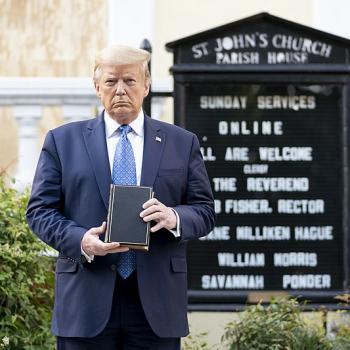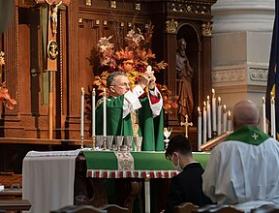The culture wars are fought with money and words rather than bullets. Perhaps the most damaging weapon is slander.
Every public person I know has been slandered. By slander I mean the deliberate character assassination of a person to destroy their effectiveness as advocates for certain viewpoints such as pro life or favoring traditional marriage.
Pope Francis was the object of slander in 2005 when his name first surfaced as a possible candidate for the papacy. The old rumors were dusted off as soon as he actually was elected last week. They claimed that he had “betrayed” two of his fellow priests, Father Francis Jalics and Father Orlando Yorio during the dictatorship of Rafael Videla in the 1970s.
Father Jalics has come forward to deny these claims. I would imagine that talking about this is still painful for him.
But, as he said ” … many commentaries contradict what I wanted to say … Neither I nor Orlando Yorio were denounced by Father Bergoglio … we were arrested because of a catechist who worked with us first and later joined the guerrilla. For nine months, we never saw her again, but two or three days after she was detained, we were detained as well.”
It’s an old story. People are “detained” and threatened or tortured to get them to “denounce” others who are “detained,” threatened and tortured in their turn. I have never understood the purpose of this, except to create a climate of abject terror and distrust within the populace. However, it’s a terrible commonplace.
The Catholic News Agency says in part:
“Since my statement on March 15 of this year, I have received many questions, so I would like to add the following. I almost feel obliged to do so, because some commentaries contradict what I wanted to say,” Fr. Jalics said.
“These are the facts: Neither I nor Orlando Yorio or were denounced by Father Bergoglio.”
“As I made clear in my previous statement, we were arrested because of a catechist who worked with us first and later joined the guerilla,” he explained.
“For nine months we never saw her again, but two or three days after she was detained, we were detained as well,” he continued. “The official who interrogated me asked for my papers. When he saw that I was born in Budapest, he thought I was a Russian spy.”
“In the Argentinean Jesuit congregation and in Catholic circles, false information spread in the years prior that claimed we had moved to the poor barrios because we belonged to the guerilla. But that was not the case. (Read more here.)












